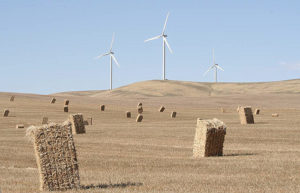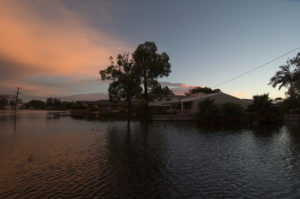
Most Australians support action to mitigate and adapt to climate change, even if they say they don’t think climate change is happening.
This is just one of the many findings from CSIRO's climate attitudes surveys. The report released this year is the culmination of five years of work, tracking Australian views on climate change and looking at trends over that time.
While this result may sound paradoxical, even nonsensical, it's not surprising when we delve deeper into the results. Survey responses often tell us more than the sum of their questions. And this is particularly so when the questions relate to a complex subject, where opinions are not always cut and dried, or even entirely consistent. The survey findings are considerably more nuanced and comprehensive than reportage linking views on climate change and political affiliation suggest, for instance.
One thing we learn is that Australians' views on the subject are influenced by a cognitive bias towards optimism. This is not a specifically Australian characteristic, but a human one – our brains are hard wired for optimism. The bias is not constrained to particular domains, but operates over a wide variety of contexts, from matters of personal health to the likelihood of being involved in a traffic accident.
And so it proved with climate change. Although respondents thought heatwaves, extreme weather events, drought and water scarcity would all probably become more frequent and intense in their region, they believed they personally would come to less harm from climate change than others in their family and neighbourhood, who in turn would be less affected than other Australians.
People around the world would face greatest harm from the impacts of climate change, with people in poor, developing countries (arguably the people ‘most unlike us’) faring worst of all. This optimism was despite more than half of the respondents saying they had already experienced an injury, loss, or damage from extreme weather.
We are also poor judges of how widespread our own and others' opinions are. Every group in the survey thought their own opinion was the most common in the broader community. People who stated they don't believe the climate is changing (7.9% of respondents) greatly overestimated how widespread their opinion is, guessing that 49.1% of people agree with them. Respondents who think climate change is natural or human-induced were more accurate in their perceptions, but even people from these groups assumed that the percentage of people who deny climate change is occurring is greater than it really is. This pluralistic ignorance (where most people privately reject an opinion, but assume incorrectly that lots of other people accept it) could be a result of the disproportionate amount of airtime and column space this position receives relative to the numbers of people who hold it.

There was also a disparity between the sources of the various beliefs. Those who stated climate change was human induced were more likely to say their opinion was based on scientific research, while those who thought climate change was not happening, or just natural, often cited 'common sense' as the basis of their opinion. All groups agreed on one point: very few respondents, no matter what their opinion, rated 'politicians and government' or 'news and media' as a significant influence on their views.
In aggregate, views about the causes of climate change remained relatively stable over time; no major shifts in Australian sentiment were detectable between 2010 and 2014. But this masked considerable volatility in opinions at the individual level, with nearly half (48.5%) the repeat respondents changing their opinion on climate change at least once.
People's views on climate change vary over time. They vary within a single survey, too, and often in surprising ways. People who believe human-induced climate change is happening thought, on average, that 79.2% of climate change is caused by human activity. Those who claim climate change is not happening attributed 34.6% of climate change to human activity. They also say that multinational corporations and big-polluting countries are largely responsible for causing climate change. If climate change is not happening, it can't also be the case that human activity contributes to climate change. We interpret these findings not as revealing inconsistencies or irrationalities in people's beliefs – all people's beliefs – but rather as demonstrating how complex human thinking is about an issue as challenging as climate change.
When we analyse these results together, we conclude that often, a person's opinion about what causes climate change is not a static belief, but rather a 'positioning statement' that captures the perceived threat posed by climate change, and the urgency and magnitude with which a person feels it should be addressed.
Nevertheless, all opinion groups supported adaptation strategies. Investment in renewable energy resources garnered most support, along with protection from invasive species, increased investment in public transport, and restrictions on development in vulnerable areas. Only investment in nuclear power stations and increased aid to countries affected by climate change were seen negatively. A key determining factor in support for adaptation measures was having an environmental worldview that justifies environmental conservation, rather than environmental destruction.

On an emotional level, attitudes to climate change were predictably negative. The most common feelings were anger, fear, and powerlessness. More positive feelings – hope, joy, and excitement – declined over time, but so did feelings of powerlessness and boredom. Those who expressed a greater sense of hope were more inclined toward behavioural engagement and support for adaptation initiatives. This also held true for those who expressed anger, shame, guilt, and fear.
But the biggest predictor of behavioural engagement was how important and personally relevant respondents considered climate change, rather than how sure they were it was happening. Feeling a moral and ethical responsibility to do something about climate change was also an important driver. This may prove to be the most useful insight into how we continue to seek individual and social change to mitigate and adapt to climate change.
